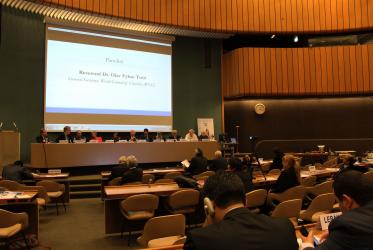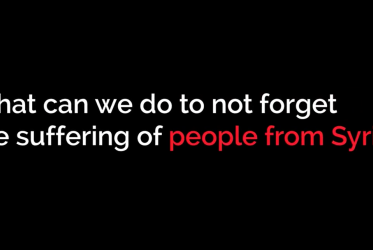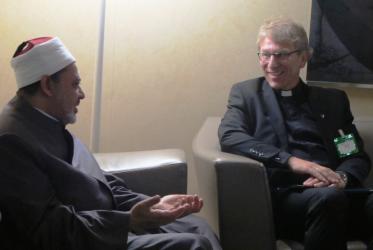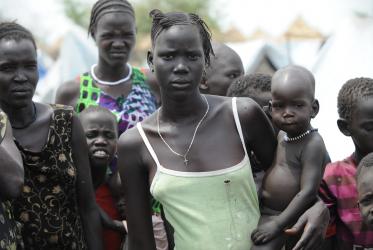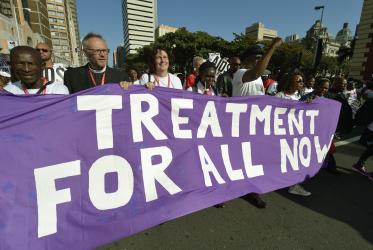Displaying 101 - 120 of 165
Islam and Christianity: finding the common ground
16 March 2017
WCC Blue Community implements water changes in the Ecumenical Centre
16 February 2017
Dialogue flourishes between WCC, Muslim Council of Elders
30 September 2016
Hielke Wolters: Apostle of mission strategies
01 August 2016
Facilitating peace with passion
26 July 2016
AIDS 2016: Coverage of faith response to HIV
22 July 2016
Children are being let down over HIV care
17 July 2016
AIDS 2016: “Stigma kills more people than HIV”
17 July 2016



